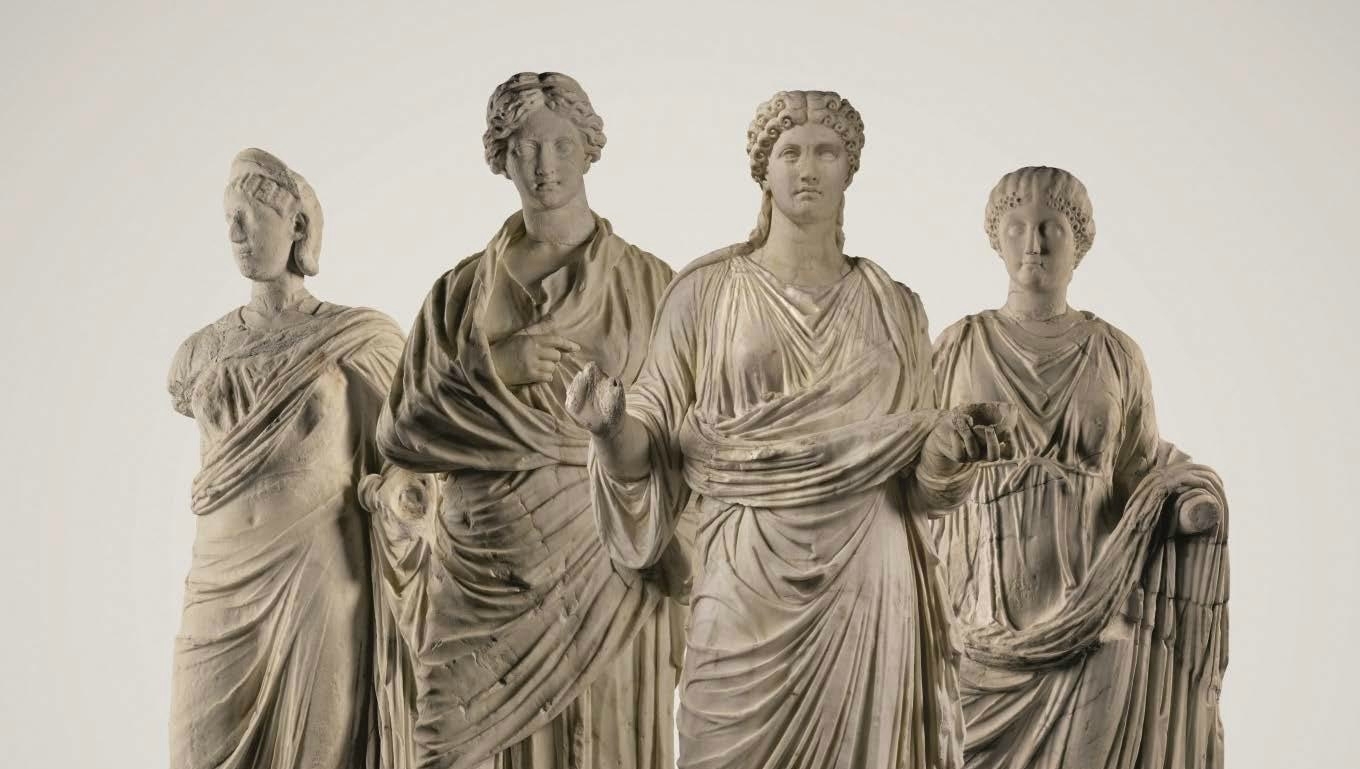Untitled
All older statues want to come alive,
Those Greek and Roman ones, and Christian, too.
Their skeletons and veins and muscles strive
To break through marble skin. They want their blue
Eyes once again to see the world of living flesh.
They want to sweat in love and hate, and force
Me to address their honor and refresh
Commitment to their dogmas and their coarse
And ancient ways of thinking. They want me
To give them even more, to carry them
Around inside me. They want me to free
Them to possess me and to marry them,
__Submit myself as good wives should. They frown
____And say, “Don’t put our marble burden down.”
A Long Dead Message
I can’t afford to send you flowers. Besides,
They’re only flowers. I want to send instead
Those things that blossoms stand for, those that brides
Desire. A garland for your curly head
Is what you need, one made of brightness, joy,
And subtle sacred things, like vestments white
With purple worn by priests of love in Troy
When trying to assuage Queen Helen’s bright
Sin. Lingering stains of innocence in me
Are what I want to send to you. Things soft,
Hard, strong, and delicate, and words like “thee,”
”Belovèd,” “loving token,” held aloft
__Are what I need to place upon your hair
____Or heart. I’m striving for a petaled snare.
Phillip Whidden is a poet published in America, England, Scotland (and elsewhere) in book form, online, and in journals. He has also had an article on Wilfred Owen’s “Dulce et Decorum est” published in The New Edinburgh Review. www.phillipwhidden.com















Older Statues and the Thought Police
I wonder if there’s a middle ground?
Can it be there but not yet found?
Perhaps in fact it isn’t ground
But the freedom that so few have found
By letting go
of all that so constricts our minds
That atrophies as well as binds
And letting God?
How clever of you to reply in the same vein (sort of) and in verse. Yes, most people, perhaps all or nearly all, struggle to move forward–away from the assumptions that our culture teaches them, rather deeply, from early on in their mental cognizance. I like the oddity of the expression at the very end, “And letting God?” The cleverness of that is great. Thanks for your intelligent response, Joe Tessitore.
I tried to send you a reply. It wouldn’t go and then disappeared.
With millions of sonnets having been written in Italian, French, Spanish, Portuguese, English, German, Polish, Dutch, Russian, Czech, Slovenian, Urdu, et cetera, the sonnet clearly has been a good practice platform for authors of this last millennium. In the sonnet’s brief plot, one can take a ride through its brief territory and there be introduced to an author’s poetic style.
What I notice about Mr. Whidden’s two sonnets is they are metrically crisp, thematically unique, and as clear and linguistically clean as any sonnets being written in English now (at least any that I have come across). Both sonnets hearken back to the Baroque style (Metaphysical, as Samuel Johnson called it). In “A Long Dead Message,” sin is effectively placed at the beginning of the sestet, in which a touch of Hopkins appears within the contraries. And although it does not read like Shakespeare’s “Sonnet 130,” that is the sonnet that comes to mind.
I feel very happy to have comments from such a knowledgeable commentator.
It’s good to have someone who reads so critically (closely) that you notice the cleanness of the rhythm. I’m very, very careful to stick to the required iambic pentameter unless there is some overriding reason for it to be disrupted. Thank you for noticing.
Sort of instinctually I see what you mean by mentioning sonnet 130. It’s great to be mentioned in the same breath as Shakespeare.
For good or for ill, I’ve written far, far more sonnets that he wrote. That implies that I have written on many, many topics and in many moods and styles. It’s good to have found a website open to such a traditional form.